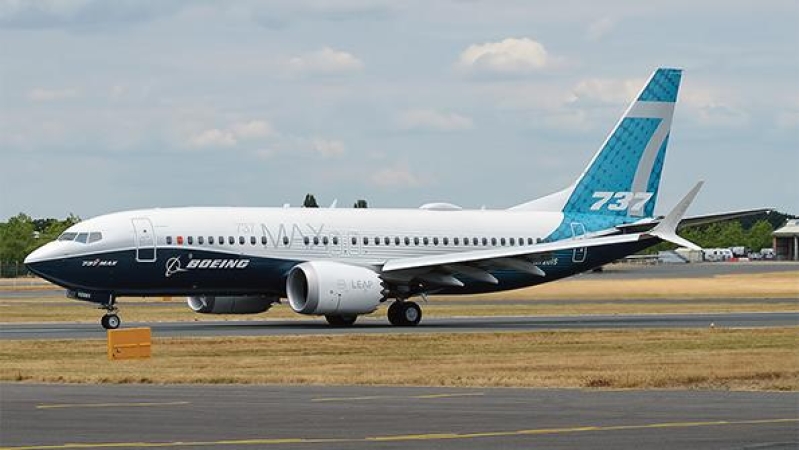June 23, 2020
Montréal Inc | Informations utiles 22 juin
Nos nouvelles Offre combinée Rive-Sud Pour la deuxième année consécutive, nous lançons l'offre combinée Rive-Sud en collaboration avec DEL (Développement économique de l'agglomération de Longueuil), Futurpreneur Canada, Desjardins, MRC Marguerite D'Youville et MRC de Roussillon. L'objectif: permettre aux entrepreneurs d'aller chercher jusqu'à 200 000$ en prêts et bourses. Cet appel de candidatures permet aux entreprises de déposer leur projet au même endroit. Date limite : 5 juillet POSER SA CANDIDATURE (RE)VOIR LE WEBINAIRE INFORMATIF Les coulisses du financement startup Jeudi 11 juin dernier, nous avons tenu une édition spéciale de notre événement Les coulisses du financement startup, en temps de crise, propulsé par la Banque Nationale, et en collaboration avec Bonjour Startup Montréal, OSMO et Maison Notman. Pas moins de 25 intervenants (banquiers, experts, VC, investisseurs, entrepreneurs, représentants d'organismes de soutien...) ont exposé les nouvelles règles du jeu : ce qui a changé, ce qui est maintenu, leurs perspectives de la crise et de l'après-crise. Enregistrement de l'événement bientôt disponible. Entreprendre au féminin Entreprendre au féminin, notre programme phare pour faire passer de l'idée à l'action des femmes entrepreneures, entame sa prochaine étape ! Pendant 1 mois intensif (parcours Élan), 24 entrepreneures (22 projets) ont accédé à des ateliers, des coachs, des lunchs avec des entrepreneures à succès, et des séances de peer to peer pour faire développer et concrétiser leur projet. Vendredi 19 juin, le parcours Élan s'est clôturé en beauté avec des pitchs de leur avancement. Pour 10 d'entre elles, l'aventure continue dans le deuxième parcours, Envol, pour passer au stade suivant : la pré-commercialisation. Les 12 autres ont la chance de poursuivre leur travail en séances de peer to peer animées par des coachs. Découvrir la cohorte, leurs projets et le programme Série Les classes de maître Revoyez la série de trois classes de maître créée spécialement pour vous accompagner dans l'adaptation de vos activités dans ce temps de relance économique. La vente B2B (28 mai) avec Alexis Bourson, Vidéotron Affaires Marketing responsable/intelligent (4 juin) avec Anne-Marie Leclair, lg2 Modèle d'affaires exponentiel (18 juin) avec Daleyne Guay, Dgit Management inc. *Une initiative de Startup en résidence Desjardins et Montréal inc., en collaboration avec Bonjour Startup Montréal Des nouvelles de nos Lauréats 1642 - Maxi change ses méthodes pour favoriser les produits locaux - La Presse Mechasys - Le Québec inc. se réinvente: Un virage technologique qui va révolutionner la construction - Le Journal de Montréal Clinia - Clinia aide les Canadiens à trouver des centres de dépistage COVID-19 près de chez eux - Clinia Stay22, MySmartJourney - Pour les startups, il n'y a rien d'éternel sauf le recommencement, par Jean-François Lavoie - tourismexpress.com Vention - Vention raises $38M CAD to scale its cloud-based manufacturing automation platform - newswire.ca Puzzle Medical Devices - Puzzle Medical Devices Inc. announces the closing of a first financing round; provides update on its minimally invasive transcatheter heart pump - prnewswire.com Lightspeed - Les minorités sont encore l'exception dans le Québec inc. - Le Journal de Montréal Nos initiatives conjointes Découvrez nos initiatives conjointes avec Bonjour Startup Montréal, Maison Notman et OSMO. Startup Radar, un nouveau répertoire de startups montréalaises maintenant disponible! Bonjour Startup Montréal a lancé la version MVP (“minimum viable product” ou produit minimal viable) de sa toute nouvelle plateforme Startup Radar. À terme, la plateforme se situera à mi-chemin entre répertoire dynamique, agrégateur de contenu et plateforme sociale, permettant de retrouver dans un seul endroit, l'information essentielle sur l'ensemble des startups montréalaises, en plus d'identifier les investisseurs, organismes de soutien et ressources d'accompagnement. La plateforme a été rendue possible gr'ce au soutien de la Ville de Montréal ainsi que du Ministère de l'Économie et de l'Innovation. Elle sera déployée prochainement dans les régions, en collaboration avec le Mouvement des accélérateurs d'innovation du Québec (MAIN). Découvrir la plateforme Startup Radar Les Mercredis startups Cette semaine, c'est mardi, exceptionnellement, qu'on vous donne RDV à 14h avec des invités de choix ! Mardi 23 juin 2020 - 14h Rachel Bendayan, Députée d'Outremont et Secrétaire parlementaire de la ministre de la Petite Entreprise, de la Promotion des exportations et du Commerce international Richard Chénier, Directeur général, CENTECH Louis-Edgar Jean-Francois, Président directeur-général, Groupe 3737 William St-Pierre, CEO, Mechasys Pape Wade, CEO et co-fondateur, Airudi INSCRIPTION Les Mercredis startups font une pause pour l'été. Rendez-vous le 19 août pour la reprise! Les Lundis innovation 29 juin, 16h à 17h30 Rejoignez-nous pour le second panel Lundis innovation autour de la chaîne d'approvisionnement et le transport : "Comment composer avec les perturbations mondiales liées aux chaînes d'approvisionnement et transport?" Parmi les panélistes déjà confirmés : Daniel Olivier, Port de Montréal Mathieu Charbonneau, CargoM Simon Boivin, Ray-Mont Logistics INSCRIPTION Réouverture du Café OSMO Dès le lundi 22 juin, le Café OSMO, lieu de rendez-vous privilégié des entrepreneurs montréalais, affilié à la Maison Notman, réouvre ses portes après trois mois de confinement! Venez découvrir leur nouveau menu et profiter de leur terrasse, grande et calme, qui vous permettra de respecter les règles de distanciation sociale. RDV du lundi au vendredi, de 9h à 17h! Événements & appels de candidatures Relevez des défis en intelligence artificielle dans le domaine de l'aérospatial et du transport urbain Découvrez 3 défis uniques proposés par l'entreprise Thales, développés en collaboration avec Collision Lab par Centech et Bonjour Startup Montréal. Vous avez des solutions permettant de répondre à des enjeux auxquels sont confrontés les compagnies aériennes, les gestionnaires d'aéroports et les autorités de transport urbain? Vous avez jusqu'au 29 juin pour appliquer: La SDC Wellington cherche à aider ses marchands dans leur plan de relance Encore une semaine pour proposer vos idées innovantes pour favoriser un avenir prospère pour nos commerçants locaux. Découvrez le défi proposé par La Société de développement commercial de Wellington, développé en collaboration avec Bonjour Startup Montréal. Vous avez des solutions pour créer un impact important pour les artères commerciales montréalaises ? Date limite pour appliquer: 29 juin APPLIQUER Collision from Home 23-25 juin 2020 Collision, événement regroupant tous les acteurs de l'industrie de la technologie, revient cette année de façon virtuelle. Dernière chance pour vous inscrire ! Plus de 400 panélistes seront au rendez-vous. INSCRIPTION Initiatives de soutien de l'écosystème Le plan de relance économique Une impulsion pour la métropole: agir maintenant de la Ville de Montréal Annoncé le 17 juin, ce plan propose des mesures concrètes et immédiates pour soutenir l'écosystème économique montréalais, alors que l'activité économique reprend graduellement. La mesure 9 souligne l'importance de mettre à profit les startups: “Stimuler l'innovation en aidant les jeunes pousses (start-ups) à travailler avec les grandes organisations. L'initiative viendra soutenir financièrement les jeunes entreprises innovantes qui développent des solutions axées sur la transition écologique et les défis urbains en collaborant avec de moyennes et de grandes organisations présentes à Montréal." LIRE LE PLAN COMPLET URelles et Le Wagon Montreal: « Soutenir les entreprises d'ici en formant les femmes à la technologie» URelles et Le Wagon Montréal proposent une nouvelle offre de service visant à encourager et à soutenir les femmes qui souhaitent se diriger vers des métiers liés à la technologie. Creative Collisions: relance de l'économie canadienne Post-COVID 19 Creative Collisions est un événement organisé par Montreal Newtech qui célèbre la collaboration entre startups, chercheurs et entreprises pour générer des innovations à impact. Appliquez pour être panéliste le 8 juillet.



